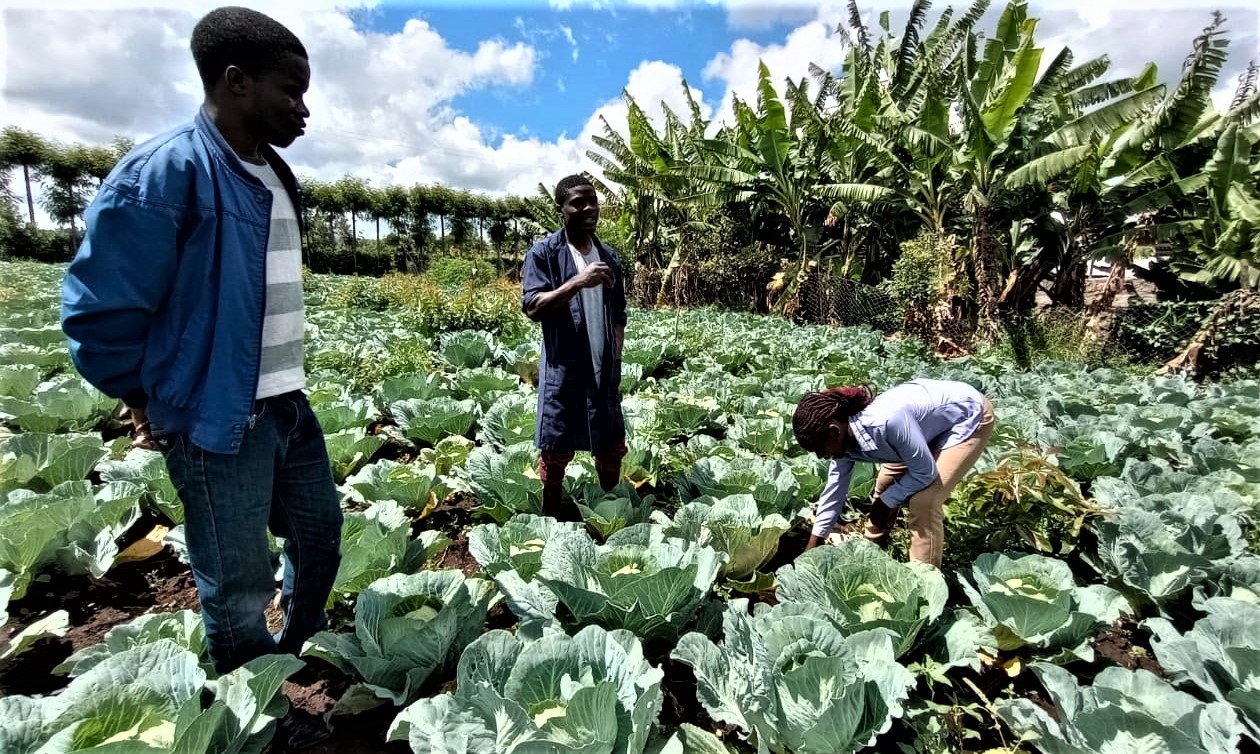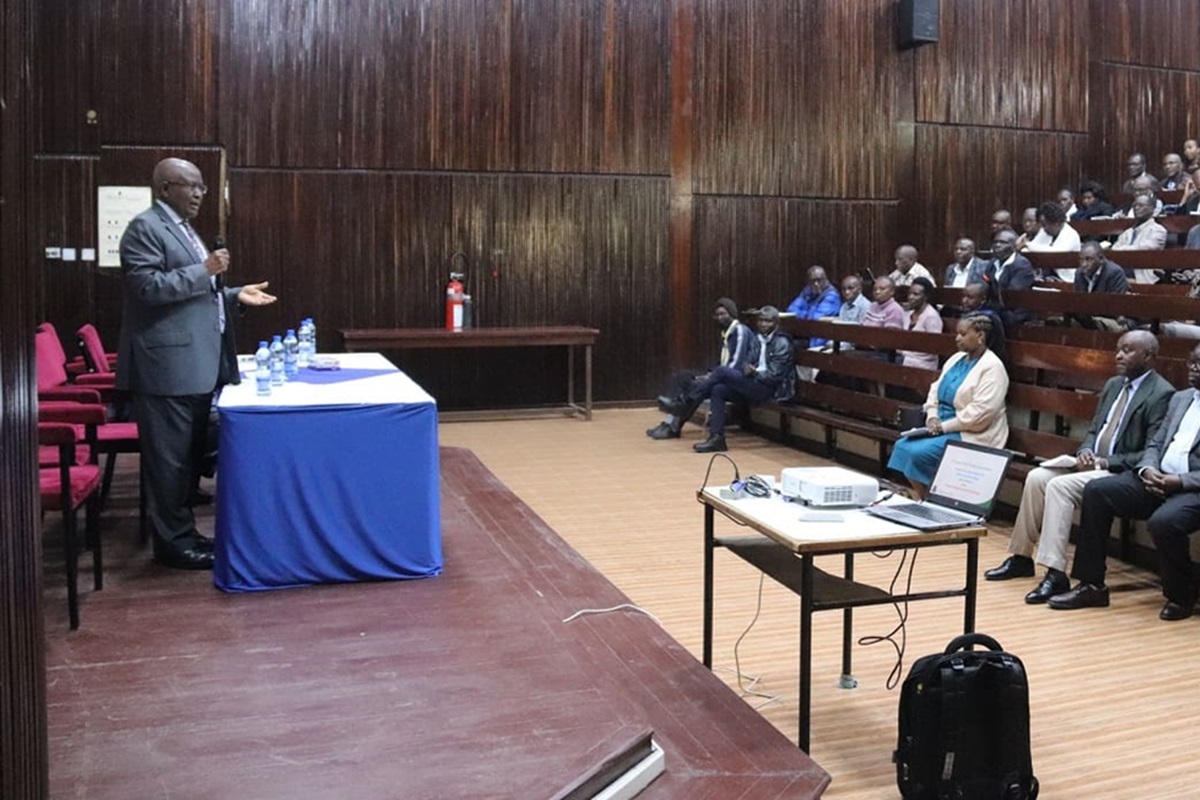How Egerton Radio’s ‘Kilimo Bora Show’ is impacting on the lives of farmers in Nakuru county
A radio programme on agriculture that runs on the university’s radio, Egerton Radio (101. 7 FM) every Saturday continues to impact on the lives of farmers in Nakuru county.
The programme, that runs for three hours from 10 am is part of the programmes that airedwhen the radio was launched in 2012. Its aim is to offer agricultural extension services to farmers through Agri-journalism information.
At the start of this year, the programme was relaunched with sponsorship from TAGDEV which enables agriculture students to visit farmers at their farms to offer practical extension services.

On 5th of this month, students visited farmers in Njokerio where they offered knowledge on horticultural farming, pig and rabbit farming.
Emily Jerop, a Bachelor of Agribusiness Management student who has had a yearlong internship in Israel, advisedAsheriNamwenje the farm manager at Elim Farm,to becareful on the times and intervals of watering his cabbages in order to avoid fungal diseases. She also advised him on plant spacing, pesticides, crop rotation and use of onions grown in between the cabbages to repel pests.
Maurice Simiyu, a Master of Science Agricultural Business Management student further advisedAsherito desalinate water at the farm, using agriculture lime since saline water causes stunted growth and destabilizesthe soil acidity levels.
Margaret Kiili, a Bachelor of Science, Animal Science student, engaged Peter Nderitu, a small-scale rabbit farmer on the best practices in rabbit rearing. Nderitu who for now has 18 rabbits, after produces 5 liters of rabbit urine per day, that he sells to other farmers, that use it as an organic pesticide for their vegetables.
Kiili stressed on the need to maintaincleanliness in rabbit rearing cagesto avoid such diseases and conditions as coccidiosis,coughing, sneezing and watery eyes.
She also advised on cage naming for ease of identification, the importance of record keeping, and to make sure that the rabbit cages are well aeratedsaying thatrabbits survive well below 20 degrees Celsius.
‘I have never thought of naming, because I assume that I know all of them, and keeping record. I have been convinced on the important of the two and from now I will implement that.’ He said with a smile on his face.
The programme is currently seeking for more partners to expand its reach and impact on more farmers, or rather, put a smile on the faces of more farmers such as Nderitu.







